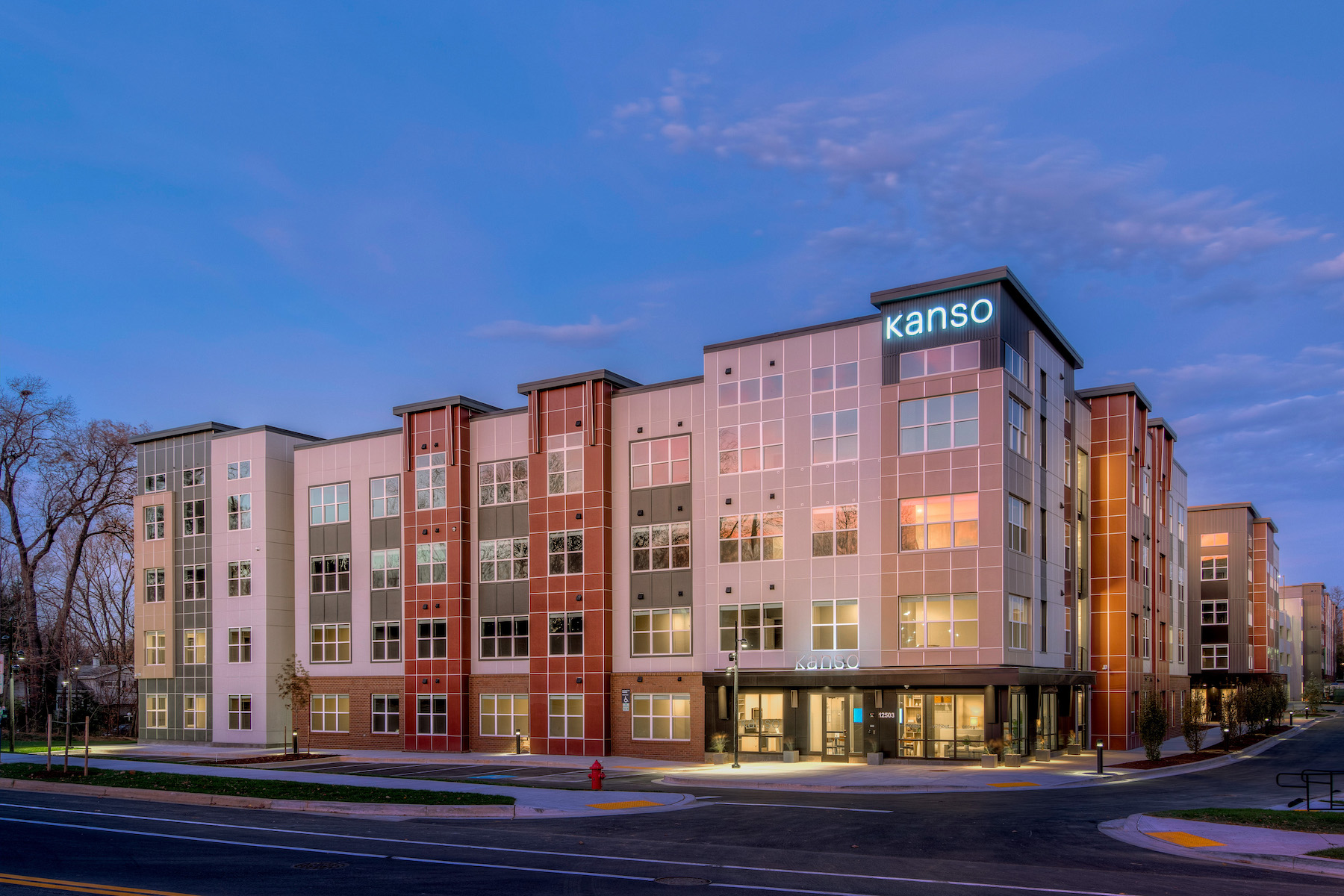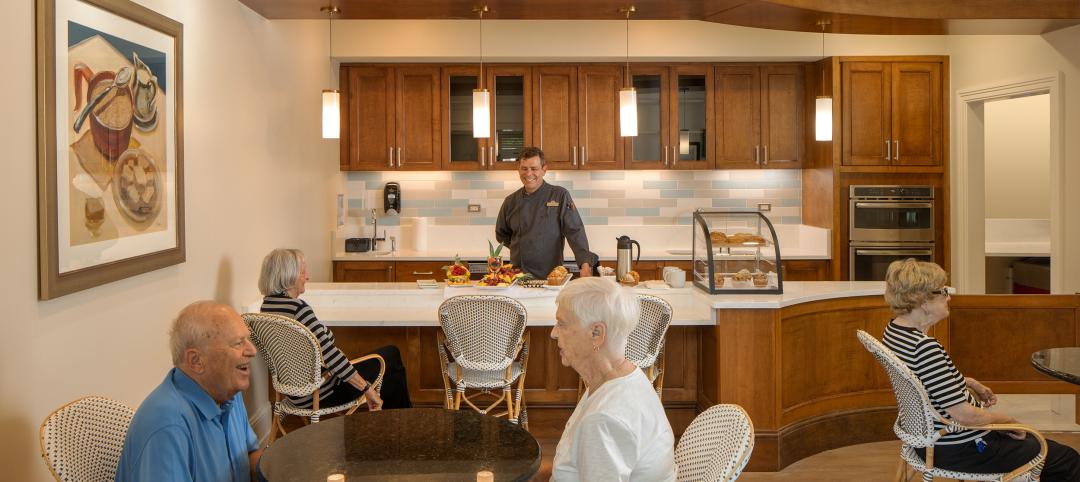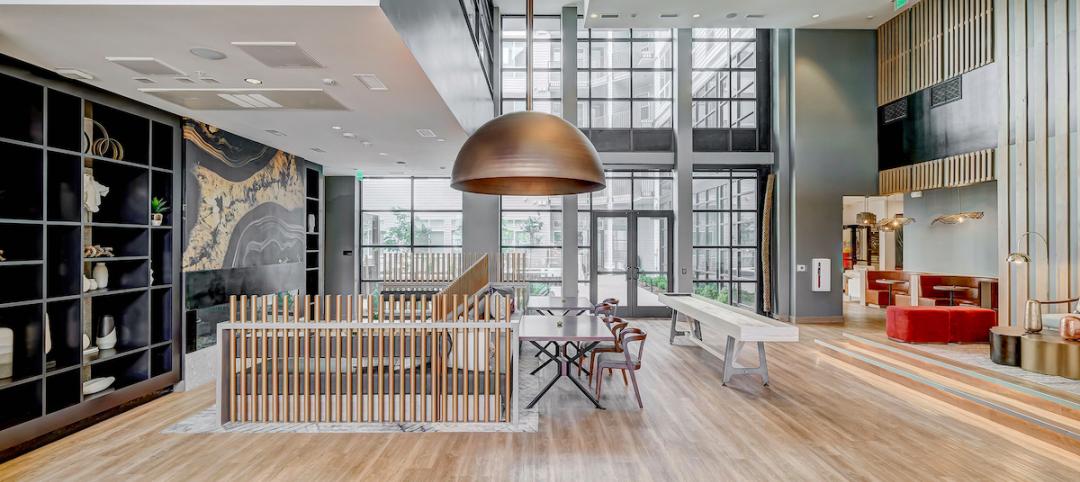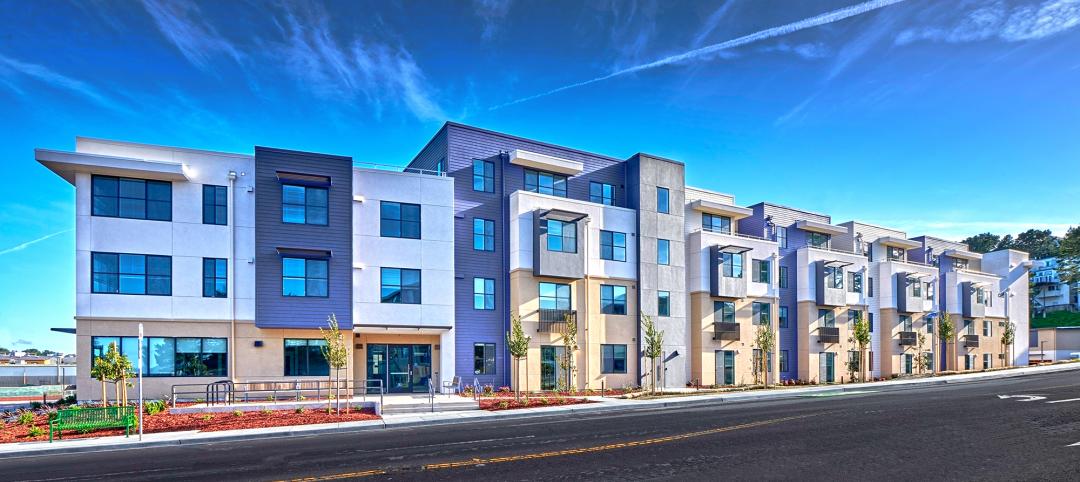Remote work is not only here to stay but is shaping the modern renter’s wants and needs while influencing design decisions and building plans across the industry.
New data from the 2022 National Multifamily Housing Council (NMHC)/Grace Hill Renter Preferences Survey Report, which features insights from more than 221,000 renters living in 4,564 communities across the U.S., shows that a rise in remote work was a driving force among renters who relocated during the pandemic. Of the 60 percent of survey respondents who moved during the past 18 months, 25 percent moved as a result of the shift to remote work.
Like many, renters are teleworking with higher frequency than ever before. Nationally, the share of respondents who are teleworking daily is roughly five times higher than it was two years ago. And many aren’t counting on that changing. Of those who currently telework (with any frequency), 64 percent anticipate working from home about the same amount over the next 12 months and 9 percent anticipate working from home more. In contrast, 27 percent said they anticipate working from home less over the coming year.
Curb-to-couch connectivity in multifamily housing
Renters have long demanded seamless connectivity, from curb to couch and everywhere in between, but this need has become critical as telecom and internet technology have become a lifeline to their livelihoods.
Respondents ranked reliable cell phone service as the No. 1 community amenity, with 86 percent of survey respondents indicating interest. Renters are even more serious about their internet connectivity in their units, with nine out of 10 respondents saying they were interested in or wouldn’t rent their home without it. An environment conducive to work also needs to be quiet and private, leading to strong interest in soundproof walls with 90 percent of renter respondents saying they are interested or won’t rent without this amenity.
As such, some communities are opting to offer high-speed, community-wide Wi-Fi as part of the properties’ amenity package. For example, AvalonBay Communities’ Kanso Twinbrook, in Rockville, Md., partners with WhiteSky to offer seamless, secure and instant high-speed Wi-Fi internet connectivity throughout the entire community. Residents can move in and log on—no equipment or installation appointments required.
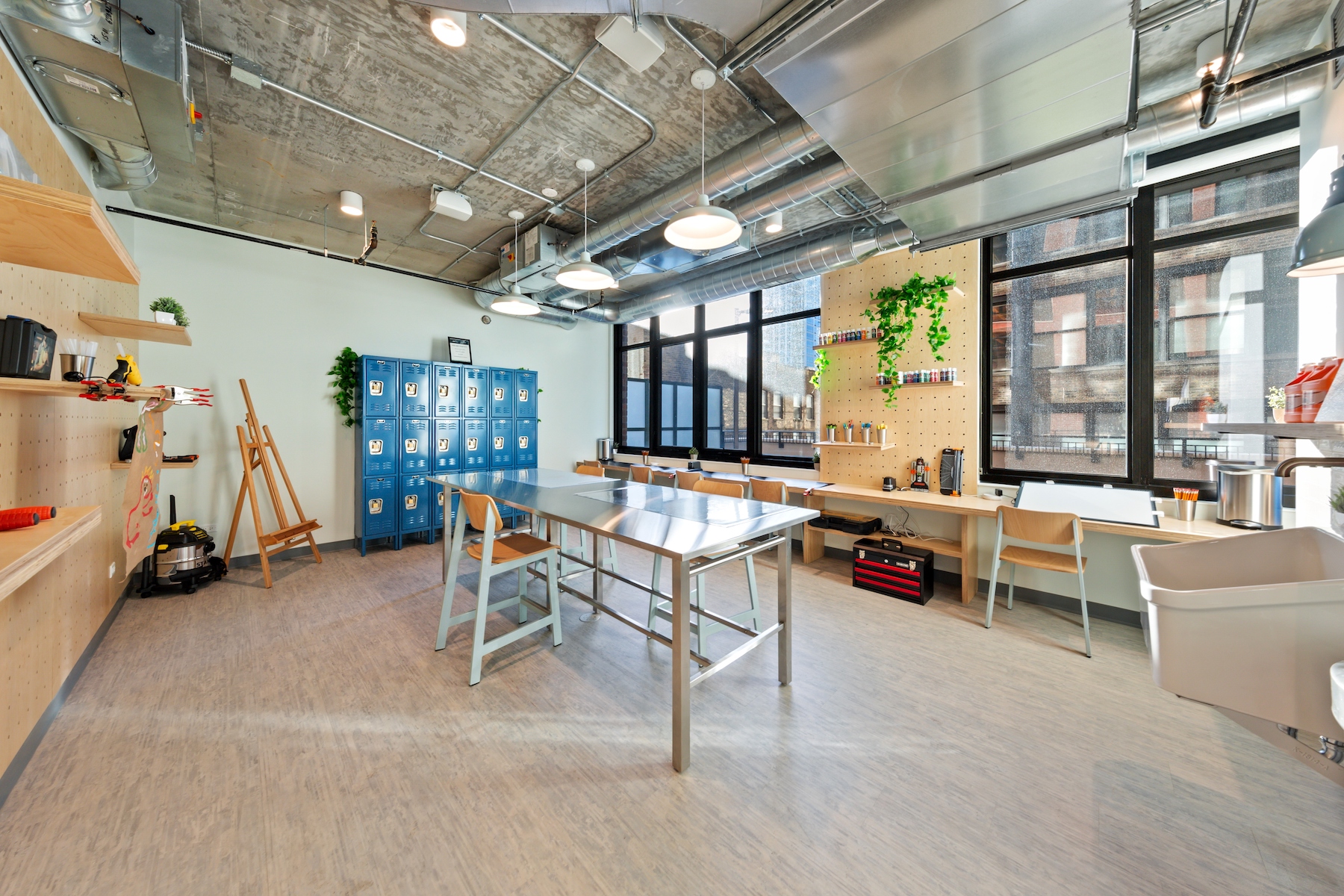
Home offices and shared meeting spaces have also become in-demand features. While 19 percent of renter respondents said they would consider using a co-working facility when teleworking, such as WeWork or SPACES, a greater share of respondents (35 percent) indicated interest in using a shared workspace at their communities.
Not only are these amenities sought after, but renters are willing to pay an additional monthly premium for them. Of those interested, the average survey respondent is willing to pay $47.93 more per month for high-speed internet, $42.78 for reliable cell phone service, and $46.21 for soundproof walls. And for a convenient onsite alternative to work from home, interested renters are willing to shell out $36.60 more on average for an on-site rentable co-working space.
Recognizing this, some developers are making significant investments in their co-working amenities by repositioning common areas as co-working space, adding charging and print stations and even introducing more specialized equipment. For example, AMLI 808 in Chicago offers downtown living with a plethora of work-from-home amenities, including an on-site podcast studio and a DIY studio for makers and builders.
Flexibility becomes a key feature in apartment design
With the lines blurred between work and home, renters are increasingly looking for flexibility in their homes to accommodate these shifting needs. Versatility rules as nearly two-thirds of survey respondents said that flexible space in their homes was either important or extremely important. Adaptable floorplans that can adjust to a variety of needs and options for furnished or unfurnished units are among the features these live-work-play from home renters desire.
As an example, AMLI 808 also features Ori studio suites. Choreographing movement into apartment homes, this modular furniture system creates a private bedroom, an open living room, work from home space, storage and more—all at the touch of a button.
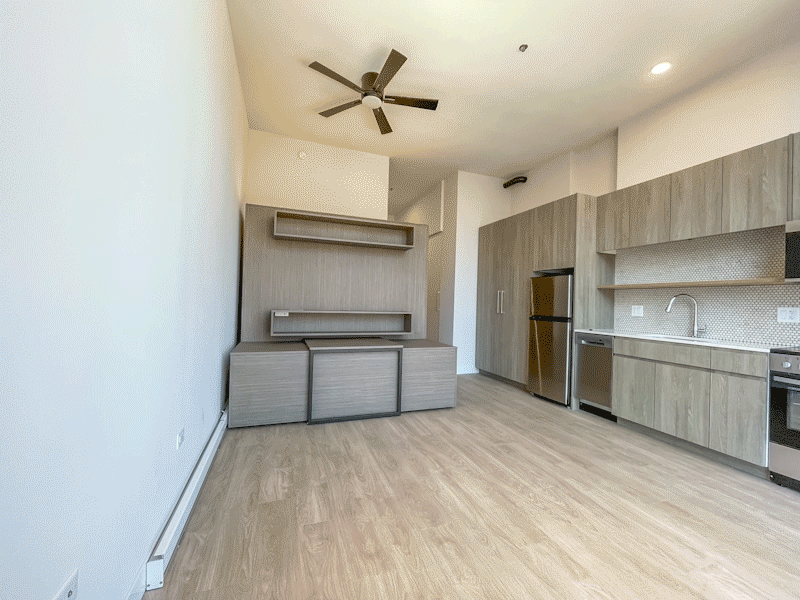
However, flex living isn't limited to just physical space. As remote work gives more renters the freedom to move about, they are considering alternatives to the traditional leasing model. For example, 56 percent of those who moved because of a switch to remote work said they would consider joining a rental housing membership program similar to a vacation club. That same group also indicated more interest than their non-mover counterparts in having the ability to list their rental homes on short-term rental sites like Airbnb or VRBO.
The pandemic has certainly changed the way we work; owners, developers and architects who recognize this new paradigm and respond with creative solutions will keep renters satisfied and the industry moving forward.
About the survey: Since its inception in 2013, the NMHC/Grace Hill Renter Preferences Survey Report has been the authoritative data source for apartment owners, managers, developers, industry suppliers, as well as architects, financial institutions and others seeking insights into the minds of renters. This biennial survey of residents at institutional-grade properties provides users with reliable data to make a variety of investment, development and operational decisions. Survey partners featured NMHC 50 companies including Greystar, AMLI Residential, and Windsor Communities.
Related Stories
Multifamily Housing | Jan 12, 2023
8 noteworthy multifamily housing projects, including a refuge for unsheltered youth
Join us on a nationwide tour of notable new multifamily projects from around the country.
Senior Living Design | Jan 10, 2023
8 senior living communities that provide residents with memory care
Here are eight senior living communities that offer their residents memory care, an important service for residents who need this specialized care.
Government Buildings | Jan 9, 2023
Blackstone, Starwood among real estate giants urging President Biden to repurpose unused federal office space for housing
The Real Estate Roundtable, a group including major real estate firms such as Brookfield Properties, Blackstone, Empire State Realty Trust, Starwood Capital, as well as multiple major banks and CRE professional organizations, recently sent a letter to President Joe Biden on the implications of remote work within the federal government.
Multifamily Housing | Jan 9, 2023
New York City advances plan to build 500,000 new housing units
After New York Mayor Eric Adams announced a “Moonshot” plan to build 500,000 new housing units over the next 10 years in early December, he moved quickly to jumpstart the process.
Sustainability | Jan 9, 2023
Innovative solutions emerge to address New York’s new greenhouse gas law
New York City’s Local Law 97, an ambitious climate plan that includes fines for owners of large buildings that don’t significantly reduce carbon emissions, has spawned innovations to address the law’s provisions.
Fire and Life Safety | Jan 9, 2023
Why lithium-ion batteries pose fire safety concerns for buildings
Lithium-ion batteries have become the dominant technology in phones, laptops, scooters, electric bikes, electric vehicles, and large-scale battery energy storage facilities. Here’s what you need to know about the fire safety concerns they pose for building owners and occupants.
Multifamily Housing | Dec 29, 2022
San Jose is largest U.S. city to abolish minimum parking for new housing
San Jose, Calif., recently became the largest U.S. city to strike down minimum parking requirements for new housing development. The city reversed zoning devised in the 1950s that reputedly gave it the worst sprawl of parking space in northern California.
Codes and Standards | Dec 29, 2022
New York City multifamily owners concerned over fires caused by e-bikes
In 2022, there have been nearly 200 fires and six deaths in New York City caused by lithium-ion batteries used in mobility devices such as electric bikes and scooters.
Multifamily Housing | Dec 27, 2022
Traverse Apartments brings 281 sorely needed rental units to the Denver area
Traverse Apartments offers 281 units, designed by KTGY, is located in Lakewood, Colo.
Multifamily Housing | Dec 21, 2022
Bay Area school district builds 122 affordable apartments for faculty and staff
The 122 affordable apartments at 705 Serramonte, Daly City, Calif., were set aside not for faculty and staff at Jefferson Union High School District.


